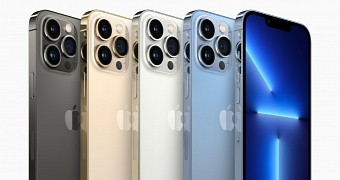One surprising change that took place on the iPhone 13 concerned the way screen replacement are handled, as Apple apparently wanted to have full control of the displays that are installed on its devices.
More specifically, iPhone 13 no longer allowed third-party screen replacements unless they were performed in an authorized shop. DIY screen replacements, on the other hand, came with one major restriction: such a process automatically disabled Face ID on the device.
In other words, replacing the broken screen on an iPhone 13 was no longer possible at third-party shops unless they were part of Apple’s network and were allowed to register the new screen.
Otherwise, the shops needed more professional equipment, including tools to move a microcontroller from the original display to the new one, just to make sure Face ID is not disabled.
Apple promised to address the whole thing by removing this restriction in an iOS update, and as it turns out, the company has kept its word and introduced this change in the latest iOS 15.2 beta.
Face ID working again
As noted by The Verge, iCorrect has made a demonstration of how the screen replacement process now works on an iPhone 13 after installing the latest iOS 12 beta.
And the good news is everything works exactly the way it should have worked from the very beginning, with Face ID no longer displayed though a notification message continues to be displayed in the settings screen. The message indicates the iPhone couldn’t verify the screen is a genuine Apple part, even though, as iCorrect indicates, the screen they used for the test was actually genuine and certified by Apple.
Needless to say, the update will become available for all iPhone 13 units out there once iOS 15.2 launches for all devices, and this is projected to happen in early December when Apple completes the testing program as part of its beta effort.

 14 DAY TRIAL //
14 DAY TRIAL // 